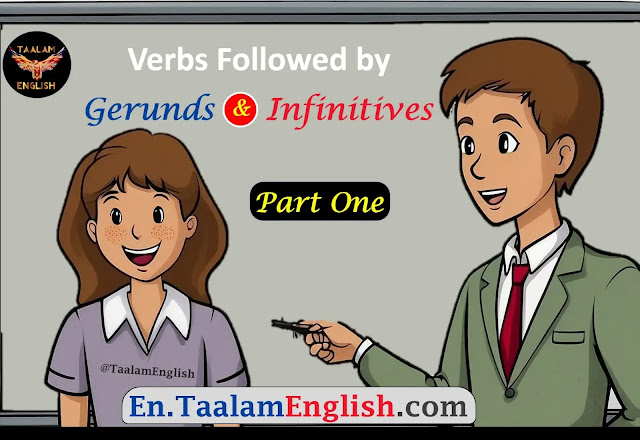A. We use the gerund (verb+ing) after these verbs:
- admit: The thief admitted stealing a lot of money from the shop.
- avoid: I have to avoid eating fast food.
- dislike: My daughter dislikes reading books.
- consider: He considers going to Egypt.
- enjoy: She enjoyed going to the party with her friends.
- finish: I have just finished doing my homework.
- regret: I regret living the school.
B. We use the bare infinitive (verb) after these verbs:
1. After Modal verbs: Must, have to, can, could, may, might, would, should,
- Must: You must do your homework.
- Have to: She has to be quick to catch the bus.
- Can: He can speak tow languages.
- Could: I could not do it now.
- May: We may choose to stay here.
- Might: They might be late.
- Would: My father did not expect that I would lie to him.
- Should: You should see a doctor.
2. After the following verbs:
- Let: Let's go to the cinema.
C. We use the infinitive (to+verb) after these verbs:
- agree: I agree to go with you.
- ask*: We asked our teacher to take some pictures.
- consent: Your mother will not consent to let you go to the park.
- expect: You are expected to get good marks.
- manage: he managed to have a meeting with his boss.
- plan: I plan to visit my grandparents.
- promise: I promise to give you enough money.
* The verb ask above is followed by the object (our teacher) then the infinitive (to take).
we can also use ask without an object (e.g. I asked to see the doctor.)

